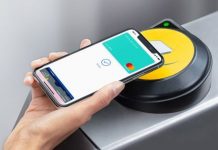Android smartphone owners could soon enjoy a new way to secure their WhatsApp account …but for iPhone owners, this new feature will look awfully familiar. That’s because the Facebook-owned chat app looks set to use facial recognition sensors to unlock the app. That should keep your individual and group chat history away from prying eyes – even if your smartphone is unlocked.
As it stands, Android users are only able to use the fingerprint scanner on their handsets to lock the messaging service. This is despite a number of Android manufacturers including sort kind of facial recognition, including Google, OnePlus, Huawei and Samsung. In contrast, WhatsApp rolled-out an update in early 2019 to take advantage of the Face ID facial recognition system built into the iPhone since the launch of the iPhone X back in November 2017.
Whispers about the new addition for WhatsApp users on Android were started by the team at @WABetaInfo, who specialise in digging through the latest beta versions of WhatsApp to uncover new details about unannounced features in the works, new features being tested, and more.
When trawling through the latest beta release on Android, @WABetaInfo found a redesigned Privacy page in the Settings menu in WhatsApp. In the new-look page, WhatsApp has replaced the Fingerprint Lock found in current versions of the app with Biometric Lock. That suggests the app will accept all biometric unlock methods used by smartphone and tablet manufacturers, including the likes or iris scanning, facial recognition, and more.
“When enabled, you’ll need to use fingerprint, face or other unique identifiers to unlock WhatsApp,” the new page explains. “You can still answer calls if WhatsApp is locked.”
READ NEXT
WhatsApp really needs to steal this amazing new Google chat innovation
Of course, there’s no way of knowing when these new options will be available on Android. On top of that, it’s unclear whether the system will work with new facial recognition systems from all manufacturers. For example, OnePlus allows users to unlock their handset with a quick glance, but acknowledges that its system isn’t secure enough to be used to authenticate tap-and-go payments with your smartphone, so you’ll need to revert back to your PIN or fingerprint for that. With Pixel 4, Google matched Apple’s levels of security with facial recognition – allowing smartphone owners to unlock their banking apps and more with a look.
Commenting on the beta version of the system, Jake Moore, Cybersecurity Specialist at ESET, told Express.co.uk, “Any extra security layer will add protection to an account, but if a passcode has to be entered each time it can come at the cost of an inconvenience to the user. However, biometrics have sped up the process, making entering apps via facial recognition or fingerprints quick and easy to use.
“Adding security layers to such as biometrics to apps within a device can be a very secure way of making it harder for malicious actors to enter more personal locations of a phone, especially for those who may be using easy-to-guess passcodes, such as a birth date or similar. I would advise people not to use basic passcodes, and always make sure their phone locks immediately after use.”




